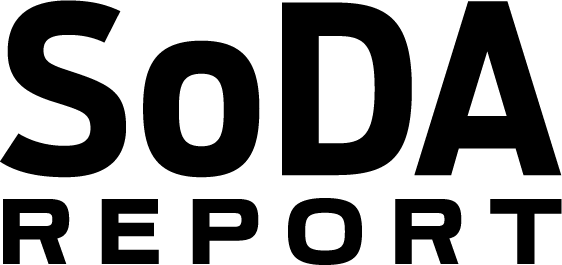Measuring Success in Agency Operations: An Interview with DPDK’s Pim van Helten
by Pim van Helten, DPDK
Which KPIs do you rely on the most to measure the success of your agency's operational improvements?
At DPDK, we utilize the Objective and Key Results (OKR) framework to structure our agency goals and translate them into operational improvements across various departments. We focus on two critical OKRs to measure the success of our operational improvements:
Project velocity: This key performance indicator assesses the speed at which projects and deliverables are completed. We utilize a combination of Jira and Kantata to track this metric. The effectiveness of our estimates, the use of appropriate tools, the deployment of suitable resources, and a solid understanding of priorities are all integral to this evaluation. Based on client feedback, we prioritize operational improvements, often in response to projects that miss their deadlines due to underlying factors affecting project velocity. Our operations team conducts weekly evaluations of the project velocity across our entire project portfolio, prioritizing guidance for teams based on deviations from expected performance. Issues identified during these evaluations often form the basis of our improvement backlog.
Planned vs actual schedule: At an operational level, we assess the difference between originally planned hours and revenue versus the actual hours and revenue achieved each week. This metric reveals deviations, ideally positive, but more often negative. These insights show how realistic the initial plans were and whether any risks were overlooked. It helps us evaluate how well the team can plan ahead and anticipate, which is crucial for managing operational processes.
Innovation is crucial in agency operations. Could you share examples of innovative strategies or technologies your agency has adopted to optimize operations, and how you measure their impact?
Innovation is indeed crucial in agency operations, though I wouldn't say we've adopted any radical new strategies. However, at DPDK, we are highly disciplined in continuously experimenting with our operational processes. There's a strong willingness to improve across all teams, particularly within the Operations team, where there's a constant search for new tools, insights, and ideas to enhance performance.
Recently, the concept of "eliminating timesheets" was discussed within the SoDA network. At DPDK, we recognized several disadvantages associated with having all team members fill out timesheets. We decided to innovate by starting an experiment where the Operations team would prefill the timesheets for all colleagues. At the end of the week, we would only discuss any modifications with the team members. We conducted this experiment for almost a year. Ultimately, we chose to revise the timesheet process, incorporating the lessons we had learned.
In my view, embracing change and developing a discipline to continually experiment is crucial, especially now as our industry is inundated with AI tools, and the agency workflow demands more change than ever before.
With the rapid advancements in technology, how do you stay ahead in leveraging tools and innovations to optimize agency operations effectively?
I’ve partly touched upon this in my previous answer. In addition to that, being a part of the SoDA network greatly assists us, as it allows different team members to see that other agencies face similar challenges. This is crucial, as it can sometimes be hard to find the motivation to tackle recurring problems in new ways. The SoDA community, through meetings with other members and the content shared, strengthens our drive to advance the industry and fuels our ongoing innovation.
In terms of staying ahead, striking the right balance between seasoned industry veterans and eager juniors is key. In certain teams, we specifically look for native AI talent—those familiar with the capabilities of AI, large language models, and associated tools. This is paired with a number of experienced seniors who have witnessed various technologies rise and fall within the digital industry hype cycle. As an agency, distinguishing between technologies that are overhyped and those that are underhyped is essential.
Collaboration is often key to successful operational optimization. How does your agency encourage a culture of collaboration and innovation among team members?
It's no secret that collaboration and culture have been under immense pressure since the pandemic. At DPDK, we face similar challenges as we now spend less face-to-face time together each week due to hybrid working arrangements. While this setup offers many benefits, it also has some drawbacks. In my experience, speed and innovation often arise spontaneously. This happens when colleagues quickly come together at the office, brainstorm, and hatch plans — typically outside of scheduled meetings or hangouts.
One of the challenges for the Operations team at DPDK is to enable these kinds of spontaneous moments by making office visits more meaningful. We do this by organizing knowledge-sharing sessions and discussing work in an informal setting, sharing our passion for what we do. These moments are crucial for igniting the fire of innovation. Once this foundation is established, good ideas always find their way.
Looking ahead, what changes do you foresee for agency operations, and how will you adapt and innovate to keep up with new challenges and opportunities?
Due to the breakthrough of AI since late December 2022 and the rapid entry of AI tools into the market, digital agencies will need to adapt their processes faster than ever and embrace the right tools to successfully ride this wave. This will require a strong capacity for experimentation and the discipline necessary for implementing operational improvements. This challenge is magnified by market uncertainties, which put additional pressure on focusing on performance and profitability while still needing to innovate. Brace yourself for a period of significant change.
On the other hand, what else is new? We have survived the demise of Flash. Our industry thrives on technological innovation. We will continue to adapt, as we have been for over 20 years.
Pim van Helten, DPDK


